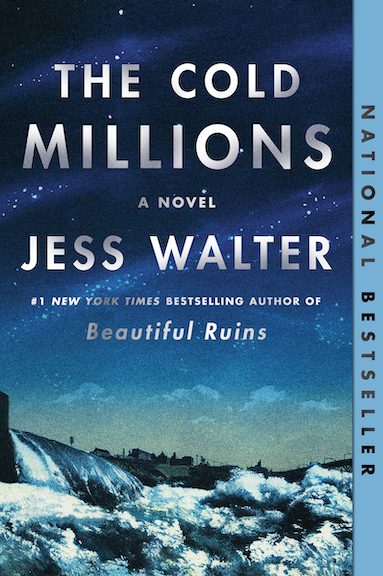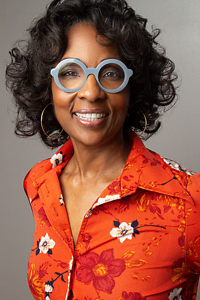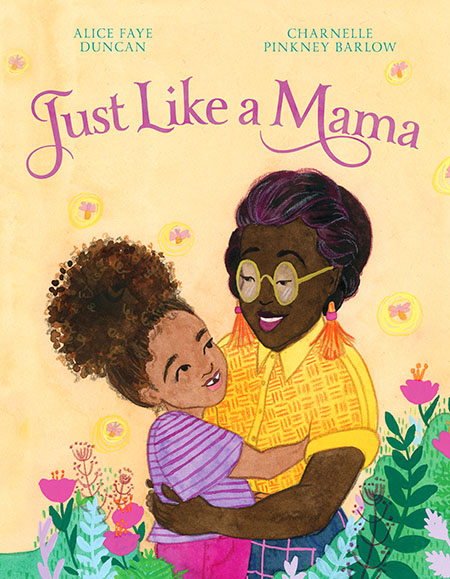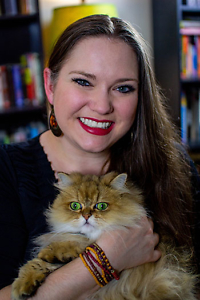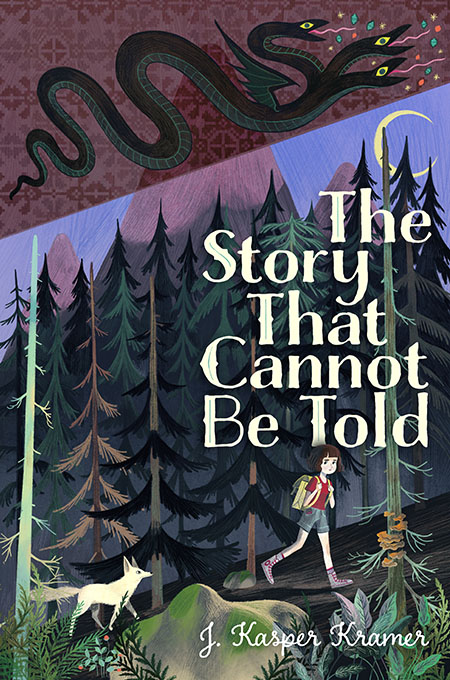The Hunger in Our Souls
Award-winning children’s author Bill Myers talks with Chapter 16 about what’s popular with YA readers today and laments the darkness he finds there
Award-winning Christian writer Bill Myers began his career in 1987 as the co-creator of the popular The Adventures of McGee and Me!, a book and video series that chronicles the adventures of young Nick and his cartoon alter-ego McGee as they learn various moral lessons through the events of daily life. Myers is also the mega-bestselling author of The Incredible Worlds of Wally McDoogle books, which are especially memorable for their humorous titles, such as My Life as Dinosaur Dental Floss and My Life as a Tarantula Toe Tickler.
Myers’s latest series, Forbidden Doors, addresses more serious subjects. Each volume features four novels that examine—from a Christian perspective—specific paranormal phenomena or supernatural practices. For example, Dark Powers, the first volume, deals with Ouija boards, reincarnation, and witchcraft. Other stories in the series consider ghosts, aliens, voodoo, and vampires, among others. In each novel, teens Scott and Becka Williams and their friend Ryan Riordan confront and defeat the forces of evil through the power of prayer and scripture, along with a little help from the mysterious “Z,” an online friend who offers timely information and advice and who often leads them into new adventures where spiritual help is desperately needed.
“Warmer Days, Darker Nights” is the theme of Myers’s current book tour, on which he is joined by two other Christian writers of YA speculative fiction, Heather Burch and Jill Williamson. In Burch’s Halflings, seventeen-year-old Nikki Youngblood is under the protection of three winged young men who call themselves “halflings,” as she struggles to escape an unknown evil bent on her destruction. In Replication: The Jason Experiment, Williamson considers the consequences of human cloning as seen through the eyes of Alaskan teen Abby Goyer—whose father is a new employee at Jason Farms—and Martyr, an escaped Jason clone scheduled to “expire” on his eighteenth birthday. The book tour events, designed especially for teen readers, will include interaction with the authors, scavenger hunts, and the chance to win a Nook or Kindle e-reader.
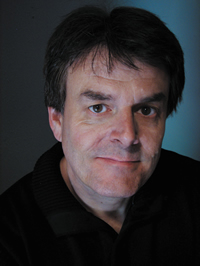 Bill Myers recently answered questions from Chapter 16 via email.
Bill Myers recently answered questions from Chapter 16 via email.
Chapter 16: Speculative fiction for young-adult readers has changed quite a bit since the days of The Lord of the Rings, the Narnia series, or A Wrinkle in Time. Writers like Madeline L’Engle, C.S. Lewis, and J.R.R. Tolkien believed that reading fantasy and science fiction expanded and enlivened the imagination, preparing young readers to accept the supernatural aspects of faith. How would you describe the aims of this genre as it is being written today?
Myers: The aims of the genre? Sadly, the aim of the secular publishers I know is to make that sale, regardless of content or impact upon the young reader. There are some pretty dark and disturbing things out there, and they are getting darker every season. For better or worse, some Christian authors and publishers are trying to combat this trend by creating moral alternatives to these very same topics. A noble approach, but one that currently leaves less room for the original, out-of-the-box thinking that brought us Lord of the Rings or A Wrinkle in Time.
Chapter 16: You have said the books in your Forbidden Doors collections are a reaction against what you believe to be the harmful and counterfeit spirituality sometimes offered by mainstream fantasy, science fiction, and horror. You’ve taken on Tarot cards, reincarnation, ghosts, shamanism, witchcraft, UFOs, and Ouija boards, among others. How do you choose which subjects to tackle?
Myers: I’ve been a youth worker ever since my college days. I spend a lot of time listening to and being immersed in youth culture. And, as an artist, I suppose I tend to be more sensitive to what is going on around me. This, plus my life-long passion to help teens navigate those wonderful, glorious, terrifying, and schizophrenic years of adolescence, helps keep me abreast of their ever-changing culture. So I watch, take notes of the newest trends, and always, always try to listen.
Chapter 16: Fantasy and sci-fi titles like Harry Potter, Twilight, and The Hunger Games have been credited with encouraging many young people to develop the habit of reading, but they’ve raised the hackles of some conservative Christian parents, too. What’s your view of these tremendously popular books?
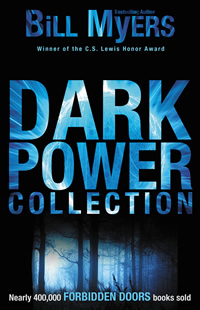 Myers: That’s a huge question and one that can’t be fully addressed here. We all know of story’s strong impact upon culture—whether it’s the parables of Jesus that helped change the world or the novel Uncle Tom’s Cabin that helped change a country’s view of slavery. And studies clearly indicate story has an even stronger influence upon younger minds. The argument of, “Hey, at least my kid is reading,” is short-sighted. Would we say the same thing about putting pornographic writing in the hands of a fourteen-year-old boy who is forming opinions on how to see and treat women?
Myers: That’s a huge question and one that can’t be fully addressed here. We all know of story’s strong impact upon culture—whether it’s the parables of Jesus that helped change the world or the novel Uncle Tom’s Cabin that helped change a country’s view of slavery. And studies clearly indicate story has an even stronger influence upon younger minds. The argument of, “Hey, at least my kid is reading,” is short-sighted. Would we say the same thing about putting pornographic writing in the hands of a fourteen-year-old boy who is forming opinions on how to see and treat women?
That said, the real question should be, “What world-view do I want shaping the mind of my child?” And that is the decision that must be made between a parent, their faith, and their child. Granted, it’s harder being a parent today. But I would urge anyone to read and watch what their child is reading and watching—if for no other reason than to discuss what they agree or disagree with. As storytellers we will impact your child’s life; for better or worse, we will have an influence. And this is definitely not the time for parents to give up their roles as character builders and abandon themselves to the lemming mentality of If everybody’s doing it, it must be OK. There are good stories out there. They’re just a little harder to find.
Chapter 16: Many of these books have spawned phenomenally successful motion pictures. As a screenwriter yourself, do you foresee a growing market for fantasy or science-fiction movies written from a Christian perspective?
Myers: Yes. As a matter of fact, we’ve formed a film company, Amaris Media, for that very reason. Like my books, our motion pictures will not necessarily be fantasy or science fiction, but they will have a strong presence of the supernatural—particularly the good. An example would be the adaptation of my novel, Eli. In it a TV reporter slips into an alternate reality where the entire Gospel unfolds before him in America today, instead of in the Middle East two thousand years ago.
Chapter 16: From Dan Brown’s The Da Vinci Code to the Left Behind series of Jenkins and LaHaye, spiritual issues seem to offer an endlessly fascinating well from which to draw fiction. How do you account for this phenomenon, especially in the high-tech, scientifically savvy twenty-first century?
Myers: There’s a hunger in all our souls for some sort of supernatural relationship. Perhaps that’s why Jesus refers to Himself as “the Bread of Life.” I think the culture we’re creating, one of unfeeling, scientific materialism and the cold sterility of high technology, is only increasing our desire for something deeper, something more powerful, something eternal.
Chapter 16: How has the industry changed since you began your career in Christian media? How do you see it adapting in the future, especially to fit the needs of younger audiences who increasingly prefer reading and viewing via mobile devices?
Myers: I’m disappointed with some of today’s Christian publishers, at least when it comes to Christian fiction. In their efforts to survive difficult financial times, many (thankfully, not all) are looking to the bottom line first. The questions of, “How does this piece minister to the reader?” or, “How does it draw our audience closer to God?” often come in last. Today they are more likely to ask, “What will make the reader feel good about themselves so they’ll buy more books in the series” or, worse yet, they leave God out of the mix entirely to avoid looking preachy, in the hopes of cross-promoting to the general market.
Where are the novels that shake us to the core, that challenge our faith so we emerge stronger, more on fire, or fall more deeply in love with Christ? Where is the art that unabashedly glorifies some aspect of the Creator that we have not seen before? Granted, some of this may be justifiable backlash to the earlier, preachy novels of a few years ago. But more than one of my author friends has thrown the baby out with the bathwater. Instead of tackling new and “novel” ways of exploring Christ (that aren’t simply illustrated sermons), they’ve removed God or have marginalized Him to a mere cultural backdrop, with the flimsy excuse of, “I’m expressing a Christian world-view.” In my opinion that’s a terrible waste of some very good talent.
Chapter 16: The latest Forbidden Doors book, Ancient Forces, was written by other authors, although it bears your name as well. Given that you haven’t yet revealed the identity of the mysterious character “Z,” is it fair to assume new volumes in the series might be forthcoming? What will be your own involvement if the series continues?
Myers: Actually, all the clues to Z’s existence are buried within the series. As far as new episodes, I’d love to do more, though I’m afraid that’s more of a financial decision to be made by the publisher. And regarding other writers—that’s a hangover from my TV-producing days where you create the characters and situations, carefully oversee the outlining of the story and the various drafts, occasionally do the final rewrite yourself . . . and give the writer no rest until both the publisher and you are happy.
Along with Heather Burch, author of Halflings, and Jill Williamson, author of Replication: The Jason Experiment, Bill Myers will make three stops in Middle Tennessee next week: on April 27, he will appear at Barnes & Noble Booksellers in Brentwood at 6 p.m.; on April 28, they will be at Lifeway Christian Store in Murfreesboro at noon, and at Parnassus Books in Nashville at 4 p.m. These events, designed especially for teen readers, will include interaction with the authors, scavenger hunts, and the chance to win a Nook or Kindle e-reader.

